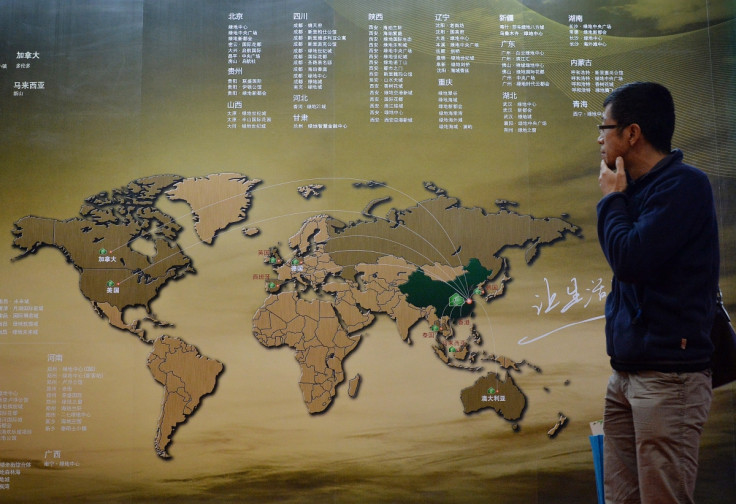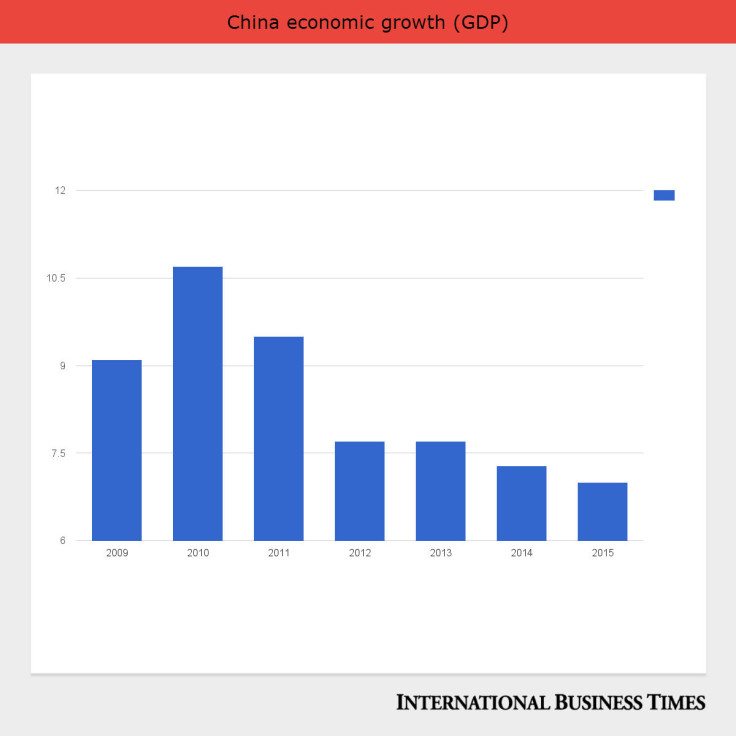China's economic problem is worse than we expected and it is crushing other markets

When the "motor behind global economy" is stalling, you cannot blame people for panicking. So when Chinese growth slowed down to single digits, the fact that the GDP was still growing by 7% was not as important as the idea that it had come down from a much stronger growth.

Now people are slowly mentioning that Chinese growth is probably, in reality, a lot weaker still. A report by Nikkei showed the GDP was more likely to be up by 5%, rather than 7%. Sanjiv Shah, chief investment officer at Sun Global Investments, told IBTimes UK that the growth might even be weaker than that and said investors are looking at different numbers to get a better idea of the state of the economy.
Authority figures
"Nobody believes the numbers that the Chinese authorities put out, nobody believes that China is really growing 7%," he said. "So people look at proxy data, things like electricity demand or consumption of certain products, which are much more difficult for statisticians or governments to fudge and there you can see that, for example, electricity demand is growing less than 2% a year. That makes it a difficult case to sell that the government is really growing much more than 5%."
With other indicators, such as energy consumption and orders of semi-manufactures, the growth of the Chinese economy is more likely to be around 4.5%, Shah said. With PMI data showing weak growth in the manufacturing industry as well, some are saying this is just the effort of the Chinese government to shift towards a more services-reliant economy based on domestic consumption.
Black Monday
Almost as if market watchers had been expecting it, the steep decline of the Shanghai Composite on Monday 24 August was named "Black Monday" before Asian markets had even closed.
Thanks to social media, everyone was talking about the financial fiasco. Analysts even told investors to "stop reading" if they were on holiday and were not up-to-date with what was going on. Meanwhile, economists and experts took to the mic to give their analysis of what was going on – yet no one could say for sure what had caused the main downturn.
IBTimes UK looked at what caused the crash and what happened afterwards.
Shah said: "There's definitely a slowdown going on and the authorities really need to do something to try and counter the fall. Even if that means boosting exports, which means at least temporarily reversing from their policy of focusing on domestic consumption, or putting that policy on hold."
One of those policies was the devaluation of the yuan which, although effective, crushed the confidence of Chinese investors.
Since the People's Bank of China introduced those measures, more than $1tn has been wiped off the Chinese stock market, and many stock markets worldwide have erased all their gains made in 2015.
Commodities and emerging markets
China's strong demand in steel, oil and copper for its lively manufacturing industry, was a force for global economy. Now the country's manufacturing activity is contracting, commodity prices have continued their downward spiral. Brazil's export-reliant economy has been hurt by China's fallen demand.
On 10 September, Standard and Poor's gave Brazil's credit status a "junk" rating, and not without good reason. The country's export value more than doubled since 2005 to $256bn and it accounts for around 14% of Brazil's GDP. When exports fall, so does the country's economy.
"Like many other countries, including South Africa, Canada and Australia, Brazil is suffering from what is going on in commodities and, of course, also in oil," Shah said. "These prices have fallen hugely, with oil being worth half the price per barrel that it was a year ago."
Brazil has been hit by a perfect storm, some say. It seems the storm that hit China has blown over to other emerging markets depending on the manufacturing giant.
© Copyright IBTimes 2025. All rights reserved.






















